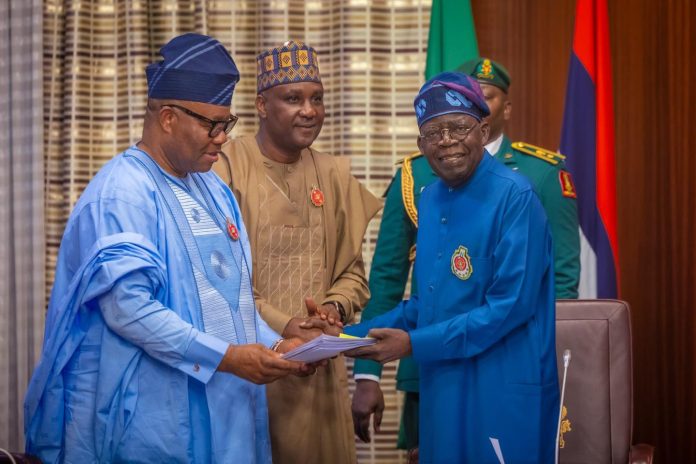Bola Tinubu has officially signed the 2024 Appropriation Bill into law, underscoring his unwavering commitment to a timely, predictable, and efficient budget cycle. The signing ceremony took place at the State House on Monday, following the President’s return to Abuja from Lagos.
In a statement during the bill signing, President Tinubu assured Nigerians that the implementation of the budget would be pursued with efficiency and closely monitored. He emphasized, “All the institutional mechanisms shall be held to account in ensuring diligent implementation.”
To enhance transparency and oversight, all Ministries, Departments, and Agencies (MDAs) have been directed to take responsibility by providing monthly Budget Performance Reports to the Ministry of Budget and Economic Planning. The President highlighted the importance of these measures, stating, “The Minister of Finance and Co-ordinating Minister of the Economy shall hold regular reviews with the Economic Management Team, and, in addition, I shall chair periodic Economic Coordination Council meetings.”
The key priorities of the N28.7 trillion 2024 budget include defense and internal security, job creation, macro-economic stability, improved investment environment, human capital development, poverty reduction, and social security.
President Tinubu emphasized his commitment to enhancing investment promotion and creating a rules-based society. Key reforms in the Nigerian judiciary, funded through the 2024 Appropriation Act, signify a pivotal step towards this vision. “Funding the judiciary is a major element in our effort to support a just, rules-based society. Statutory transfer to the Judiciary has been increased from 165 billion naira to 342 billion naira,” stated the President.
The budget breakdown includes capital expenditure at N10 trillion, recurrent expenditure at N8.8 trillion, debt service at N8.2 trillion, and statutory transfers at N1.7 trillion.
Present at the signing ceremony were President of the Senate, Godswill Akpabio, and Speaker of the House of Representatives, Tajudeen Abbas. Other senior government officials included Minister of Finance and Coordinating Minister of the Economy, Wale Edun; Chief of Staff to the President, Femi Gbajabiamila; Minister of Budget and Economic Planning, Senator Atiku Bagudu, and National Security Adviser, Nuhu Ribadu.




